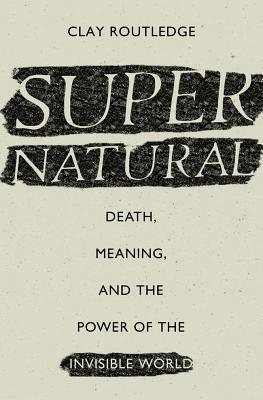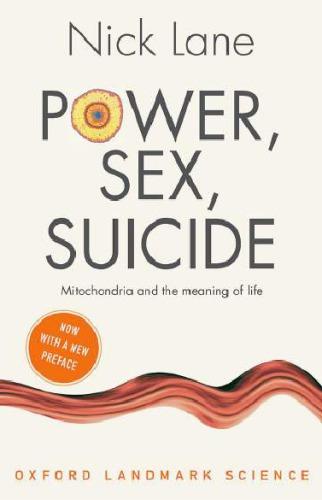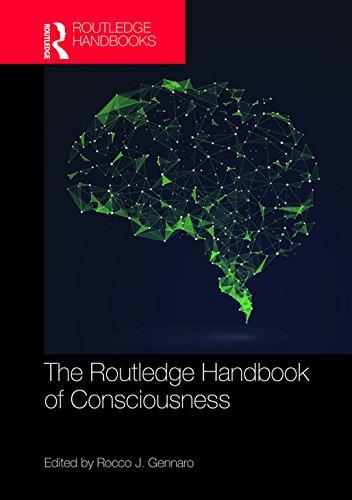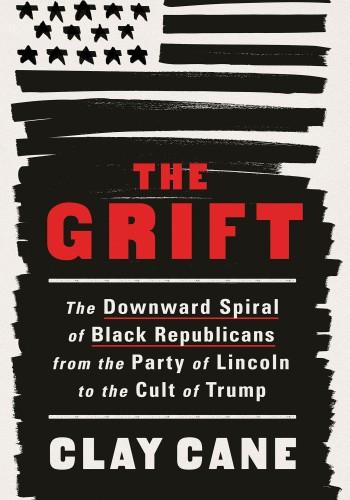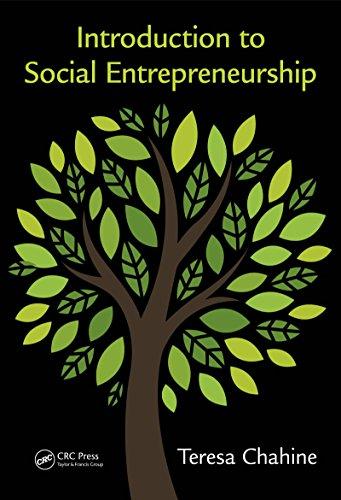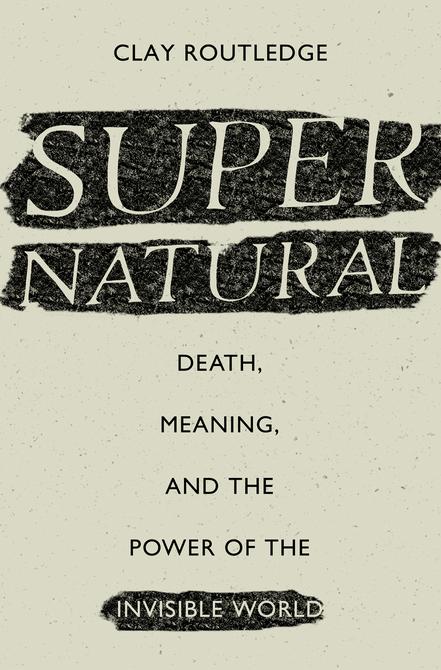Cowboy
https://ebookmass.com/product/cowboy-heat-wave-kim-redford-4/
ebookmass.com
Supernatural
Death, Meaning, and the Power of the Invisible World
CLAY ROUTLEDGE
Oxford University Press is a department of the University of Oxford. It furthers the University’s objective of excellence in research, scholarship, and education by publishing worldwide. Oxford is a registered trade mark of Oxford University Press in the UK and certain other countries.
Published in the United States of America by Oxford University Press 198 Madison Avenue, New York, NY 10016, United States of America.
© Clay Routledge 2018
All rights reserved. No part of this publication may be reproduced, stored in a retrieval system, or transmitted, in any form or by any means, without the prior permission in writing of Oxford University Press, or as expressly permitted by law, by license, or under terms agreed with the appropriate reproduction rights organization. Inquiries concerning reproduction outside the scope of the above should be sent to the Rights Department, Oxford University Press, at the address above.
You must not circulate this work in any other form and you must impose this same condition on any acquirer.
Library of Congress Cataloging-in-Publication Data
Names: Routledge, Clay, author.
Title: Supernatural : death, meaning, and the power of the invisible world / Clay Routledge. Description: New York : Oxford University Press, 2018. | Includes bibliographical references and index.
Identifiers: LCCN 2017041795 | ISBN 9780190629427 (jacketed hardcover : alk. paper)
Subjects: LCSH: Supernatural. | Religion. | Occultism.
Classification: LCC BL100 .R68 2018 | DDC 200.1/9—dc23
LC record available at https://lccn.loc.gov/2017041795
9 8 7 6 5 4 3 2 1
Printed by Sheridan Books, Inc., United States of America
This book is dedicated to my mother and late father. I don’t have the words to thank them for all they have done for me.
TABLE OF CONTENTS
ACKNOWLEDGMENTS ix
INTRODUCTION xi
1. We Are All Going to Die—And We Know It 1
2. The Supernatural World Is a Meaningful World 25
3. Religion: The Most Powerful Form of Supernatural Belief 51
4. The Secret Supernatural Lives of Atheists 75
5. The Secular Supernatural 97
6. The Many Benefits of Supernatural Beliefs 123
7. The Dark Side of Supernatural Beliefs 147
8. Toward a Common Humanity 167
NOTES 193
INDEX 209
ACKNOWLEDGMENTS
I would like to thank my editor Abby Gross and my publisher Oxford University Press. I would like to give a special thanks to my literary agent Nathaniel Jacks of Inkwell Management who played a vital role in helping me shape a coherent vision for this book. I would also like to thank the John Templeton Foundation, which funded some of my research on meaning-motivated supernatural beliefs discussed in this book. Most importantly, I would like to thank my wife, Jenny Routledge, for her constant support and feedback in life, generally, and on this book, specifically.
INTRODUCTION
My son is a high school swimmer and, for reasons that remain a mystery to me, at a recent meet decided to collect and combine the bottles of juice, sports beverages, and smoothies various members of his team were consuming in order to make a super sugary cocktail. After preparing his mix, which he named “The Juice,” he insisted that every swimmer on the team take a swig (or more) prior to their next race. What did the exercise in improvisational mixology accomplish? Evidently, a lot as everyone who consumed this nectar of the Gatorade Gods improved their race times. And by being the one who engineered this magical athletic elixir, my son was nicknamed “The Juice” and charged with the duty of concocting “the juice” at every swim meet for the rest of the season.
These kinds of superstitious behaviors in sports are common. Michael Jordan, often considered the best basketball player of all time, admitting to wearing his old University of North Carolina shorts underneath his NBA uniform because he thought doing so would bring him good luck. Jordan was a dominant player during his career, and yet he still thought it prudent to keep the magical ritual going. And he is not alone. Many top level professional athletes have confessed to a range of superstitious behaviors during competition. Many sports fans also employ a variety of superstitious rituals in order to make their magical contribution to their favorite team’s success.
Have you ever had a goal blocked such as getting that coveted promotion at work you desperately wanted or buying that perfect house in
the ideal neighborhood that you put an offer on? When the outcome you wanted did not occur did someone offer the condolence of “I guess it wasn’t meant to be”? Or did you think that yourself? Can you think of an experience involving a positive outcome such as meeting the love of your life that felt destined to be? Or have you had a close call of some variety, trivial or serious, that made you feel like someone or something up above was watching out for you?
I remember seeing an interview once with an environmental activist who was arguing that recent extreme weather trends were the result of Mother Nature being angry with humans for polluting the Earth and wasting its resources. She was not simply saying that human behavior was causing changes in the climate. She was going a step further and asserting that we have caused the Earth pain and suffering and have angered it. And now we are facing the wrath of this vengeful living organism.
Every day, through the act of prayer, millions of people talk to a deity they have never seen. People have spent time and money fighting to preserve their right to this activity in public spaces. Political elections are sometimes swayed by whether or not a candidate is believed to be a supporter of prayer and someone who prays. Many people around the globe are confident that God is listening and responding to their prayers, even if they are not able to understand his wisdom.
I recently gave a talk at a universalist church about some of the nontraditional ways that people pursue spiritual needs. A very kind elderly lady approached me after the service and, with deep sincerity, laid out a case supporting the existence of intelligent extraterrestrial life. She wasn’t simply arguing that aliens exist. She was advancing a very elaborate theory involving God-like celestial beings watching over humans with the goal of preparing us to be part of a much larger cosmic brotherhood. In due time, these aliens would reveal how all the world’s religions can be unified under one super religion. She was thoughtful, calm, and otherwise looked like any other sweet elderly woman. And she is patiently waiting for aliens to save us from ourselves.
These examples are just a small sample of the many ways that people invoke the supernatural. Some of them might strike you as ridiculous.
Some of them might seem completely reasonable. But they all involve immeasurable forces that defy our scientific understanding of the world. That is, they all implicate something beyond the laws of nature as we understand them.
Supernatural thinking is so common we rarely notice it. Consider the following example. I was at a swim meet (I am always at swim meets these days) and because it was the same day that our university’s football team was playing in a national championship game some of the men had set up a room in the school with a television. This way they could watch the game when their sons were not swimming.
So a group of people were in the room watching the game and our team was pretty far in the lead. This is where the story gets interesting. A girl who could not have been more than 9 or 10 years old said something to the effect of it being possible that our team could still lose. At that point, one of the men in the room became upset. He very firmly told the girl that she was going to have to leave the room and not return if she jinxed the game like that again. It wasn’t just that she had raised the possibility that our team’s fortunes could turn. She was tempting fate or creating some kind of negative energy that could alter the probable outcome of a commanding victory.
There must have been 15 to 20 men in the room (and a handful of women) and no one even flinched at the distraught man’s concerns. I was carefully observing at this point and not a single person in that room gestured in any way that he was being silly. No eye rolls, laughter, whispers, or anything. Did people think his fears were reasonable? I don’t know, but his suggestion did not appear to strike anyone as noteworthy. To think that a little girl could influence the outcome of a game simply by verbally recognizing that the tide could change is supernatural thinking. And people do this kind of thing every day, often without even realizing it.
Sometimes our supernatural thoughts and behaviors are relatively minor and inconsequential. Wearing a lucky pair of socks is not a big deal. Knocking on wood is not going to cause anyone any harm. In fact, as I discuss at length in Chapter 6, supernatural beliefs and related practices can have many physical and mental health benefits. But investments
in the supernatural are not always minor events or healthy activities. Sometimes supernatural beliefs put both the believers and others in danger. In Chapter 7 I consider how supernatural thinking and beliefs can cause great harm.
For now, let my start by trying to tackle the basic question of how people are even able to think about the supernatural. What is it about our minds that allow us to speculate about and believe in things that violate natural laws?
It is a common idea that beliefs, whether they be supernatural or not, are learned. People are religious, for example, because they are raised in religious environments, right? This is partially true. Studies do show that one’s religiosity can be at least partially explained by growing up in a religious household and having religious peers. But why are our parents religious, and why were their parents religious, and so on? In other words, though we learn specific religious doctrines and traditions from family and peers, why did humans ever start these doctrines and traditions? What is it about human nature that fosters these kinds of beliefs?
One proposal is that we are born believers, that supernatural thinking is just a natural part of how the human brain works. A number of researchers and writers have made some version of this claim. The basic idea is that supernatural thinking can be explained by innate cognitive processes and tendencies. Research based on this idea is often referred to as the cognitive science of religion. Throughout the book, when relevant, I touch on some of this work.
Central to my argument, however, is the notion that supernatural thinking and beliefs are not merely the result of natural cognitive processes, but that they are also motivated by basic existential questions about the meaning of life and inevitability of death. I take no issue with the cognitive perspective. In fact, my research connects to the cognitive science of religion. Critically, my motivational analysis builds on the cognitive approach because existential motives involve the cognitive processes implicated in supernatural beliefs.
The cognitive perspective is vital for understanding how humans are able to engage in supernatural thinking and why from a very early age we are compelled to believe in supernatural possibilities. However, this
perspective does not fully explain why people maintain certain beliefs once they reach full cognitive development even though they abandon many others. Nor does it explain why people develop new supernatural beliefs as adults. Most importantly, it does not explain why people turn to supernatural beliefs in times of loss, pain, stress, and uncertainty or why such beliefs so effectively help people cope with these negative emotional states.
A cognitive account offers important insight but a motivational perspective is also vital. In this book, I describe an existential motivational approach to understanding the human proclivity to engage in supernatural thinking and to hold supernatural beliefs. I specifically focus on the unique motivational power of the human awareness of death and the desire to find and maintain a sense of meaning in life.
Like the cognitive approach, my own research and the case I put forward in this book treats supernatural beliefs as part of human nature. Humans are existential animals, beings driven to find enduring meaning in the face of an awareness of mortal finitude. And we are naturally drawn to supernatural ideas and beliefs in this pursuit. Socialization and enculturation influence what particular beliefs people tend to hold, but basic psychological needs and the cognitive processes involved in efforts to meet these needs underlie supernatural thoughts, curiosities, and beliefs.
Human psychology is extremely complex. There are undoubtedly a number of reasons that people turn to the supernatural. However, decades of research in psychology, which builds upon much older theorizing in fields such as theology, cultural anthropology, sociology, and philosophy, reveals that existential questions and concerns about death and meaning play a fundamental role in the supernatural lives of humans.
This book is not an attempt to say religion or any other supernatural belief is right or wrong. This book is about the psychology of supernatural thoughts and beliefs. What are the measurable variables that influence people’s attraction to the supernatural and what are the measurable psychological and physical health implications of believing in the supernatural? These questions I can seek to answer using the tools of science. In fact, as a psychological scientist who studies human motivation, I have spent years seeking to answer these questions. And in this book, I try to at least partially explain what I have learned.
We Are All Going to Die— And We Know It
When I was a little boy I loved wearing my superhero pajamas. I was especially fond of the Superman set with the Velcroattachable cape. I would run around the house pretending to fly through the air, liberated from the physical restrictions imposed by gravity. This is obviously not a unique childhood memory. Ever since the world was first introduced to superhero comics and Superman, the first comic book superhero, in 1938, we have collectively been enamored with the genre. In fact, in recent years, superhero movies have dominated the box office, grossing billions of dollars and creating an equally lucrative market for a wide range of toy, video game, food, and clothing products. Of course, stories about mythical beings with magical powers were around long before modern-day comic books and movies. These types of media are just another manifestation of the human fascination with tales of those who can defy the laws of nature. But why are we so captivated by these stories and these characters?
Many have argued that one reason humans are attracted to stories featuring characters with superhuman abilities is because they provide an escape. But an escape from what? Entertainment in many forms allows a temporary respite from day-to-day stressors and hassles. But maybe stories of heroes with magical powers do more than provide a distraction from the challenges of life. Superman was introduced and popularized when the United States was licking its wounds from the Great Depression and being pulled into World War II. In times of economic uncertainty and war, people are reminded of just how vulnerable and fragile their lives are. Perhaps in such times we are drawn to narratives about superheroes because they allow us to imagine being strong and powerful, more than mere mortals.
A group of social psychologists tested this idea.1 They focused specifically on the power of flight, arguing that humans are particularly attracted to this super power. Indeed, archaeological evidence suggests that our species has long fantasized about being able to soar through the air. Stories about human-like beings that can fly are found in many cultures and can be dated back to early human cave-paintings. Our ancestors had their own version of Superman. In fact, anthropologists have noted that many ancient civilizations around the world worshiped sky-gods or postulated human-like magical creatures or spiritual beings that had the power of flight. Dreams about flying are also very common. For example, researchers from the Central Institute of Mental Health Sleep Laboratory in Mannheim, Germany, found that over 60% of people report having dreamed of being able to fly or soar through the air.2
The research team proposed that humans around the world and throughout history have been and continue to be fascinated with the power of flight because this power symbolizes freedom from the confines of mortality. To fly is to defeat the laws of nature. Flight reflects transcendence. When people die, their bodies go down into the earth but their souls fly away. So flight fantasy is escapism, but escapism of a particular type. To fly is to symbolically escape death. Indeed, America’s most iconic superhero, Superman, has the power of flight and is virtually immortal, kryptonite being his only real vulnerability.
The researchers put forward a simple hypothesis. If humans are attracted to the power of flight because it represents freedom from mortal limitations, then having people think about mortality should increase their attraction to flight fantasies. To test this, research participants were brought into a laboratory and asked to complete some personality questionnaires. In one of the personality questionnaires, half of the participants were presented with the following instructions: “Briefly describe the emotions that the thought of your own death arouses in you.” They were then given a few minutes to articulate in writing their reflections on mortality. The other half of the participants were instead asked to describe their emotions associated with taking a future exam. I should note that the participants in this study were college students. So both tasks had the potential to generate some distress, but only one of them served as a reminder of the inevitability of death. The other task was more of a reminder of the inevitability of pulling a last-minute all-night cram session.
At a later point in the study, participants read a brief description of a flight fantasy and were asked questions concerned with the extent to which they like to imagine being able to fly.
The researchers proposed that flight fantasy is not merely a form of escape that people turn to any time they are confronted with something unpleasant. Instead, they argued that this fantasy is particularly about a longing to escape death. This is why they had some participants think about taking an exam. If flight fantasy equally serves as a form of escape anytime people are thinking about something unpleasant, something they would prefer to not think about in that moment, then the researchers would not find a difference between participants who thought about death and those who thought about taking an exam. But if flight fantasy is especially helpful when people are thinking about their mortal vulnerabilities, then those who were asked to ponder their mortality should express a greater desire to imagine being able to fly than those asked to think about taking an exam. And this is precisely what the researchers found. Thinking about death inspired flight fantasy. Imagining being able to fly may offer little assistance with a physics final, but it does help with the fear of death.
In other studies, this research team explored but found no evidence supporting the idea that contemplating mortality simply increases the desire to distract oneself with any imaginative activity. For example, they found that thinking about death did not increase people’s interest in imagining having the ability to read other people’s minds. When life experiences force us to face our existential reality, the fact that we are physical beings destined to die, the super powers that we are truly interested in are the ones that symbolize death transcendence. We want to fantasize about being able to fly because we know that we die.
And this is just the beginning. As humans, we go to great lengths to break free from our mortal chains, to feel like we are more than the sum of our biological parts. And these efforts are sometimes benign and sometimes humorous, but sometimes they also have rather serious social implications. Critically, these efforts to be more than mortal help explain why humans are and will likely always be supernatural thinkers.
AWARENESS OF DEATH CHANGED EVERYTHING
Like most parents, I remember when my children first became aware of their mortality. It was a particularly noteworthy awakening for my son. He must have been around 6 years old, and it started with a teary episode at bedtime. After I turned off his bedroom light, but before I could leave his room, he started to cry. He managed to get out the words, “Dad, I don’t want you to die.”
As part of normal psychological development, kids learn the implications of death. It may start with a difficult conversation in the wake of the death of a favorite pet or grandparent, or the recognition that their parents are aging and people who get old die. Eventually, they connect the dots and come to the full realization that they too share this fate. Inevitably, the questions follow, often in rapid-fire succession. Do we have to die? Why do we have to die? How long do people live? What is death like? Will it hurt? Will I be scared? What happens to us after we die? And so on. Understanding mortality is part of being human. But it is a great burden
to shoulder. And it is a burden that has dramatically affected how we, as a species, organize our lives. The awareness of death created a unique psychological burden that demanded a solution. And our species found one: belief in the supernatural.
Most of us have wondered at some point: if I could get in a time machine and travel to any date, what would it be? Some people say they would prefer to go forward, to see what the future holds for our species. Will we finally get jetpacks and flying cars? Will we cure cancer or colonize Mars? Others want to go back in time to a particular era of interest. Maybe they would like to see what it was like for early European immigrants who traveled at great peril to the Americas. What was life like for these brave journeyers? Or perhaps they would like to get a glimpse of life in Ancient Rome or Egypt. Personally, if I could hop in a machine and travel to any point in time I would go back much further, to an era when our ancestors started to become the existential animals that we are today. Imagine when humans first started to stare up at the stars and ponder their place in cosmos. Or consider what it might have been like to begin to question the purpose of life and the implications of death. This is the world I would travel to. It is the world that truly sparked supernatural beliefs.
Though it is extremely difficult to pinpoint a specific period of time in which humans started to invest in supernatural ideas and beliefs, our ancestors left behind helpful clues. For example, ritualistic burial of the dead can be dated as far back as 100,000 years ago. But it was about 30,000 years ago that perhaps more compelling evidence for supernatural beliefs can be found, a time when our ancestors started to truly show signs of a species concerned about more than merely eking out an earthly existence. This is when archaeologists date the first religious-like cave paintings as well as the first elaborate examples of ceremonial burial that appeared to represent a belief that the person who died may be passing on to another realm of existence. The evidence suggests a concern with matters not just of the body but also of the soul.
But what is it about that time in human history that triggered our species’ investment in supernatural ideas? It was around then that our ancestors most likely began to fully develop the advanced cognitive capacities
that we have today, the properties that help distinguish us intellectually from other species: self-awareness, temporal consciousness, and abstract/ imaginative thinking. It is crucial to understand just how much of an impact these abilities have had on our species and, ultimately, our inclination to believe in the supernatural. So let us consider each one of them in some detail.
We can focus our attention toward the self at a level of sophistication far beyond any other animal. And this high level of self-awareness has proven critical for us. It has allowed us to exercise a significant amount of control over our behavior. Instead of merely acting on impulse, we can regulate our behavior based on personal self-standards or goals (though we often struggle and fail to do so). We can empathize with others because by being able to reflect on our own feelings and goals we can imagine the feelings and goals of other people.
If you want to truly appreciate the value of this consciousness of self, spend some time with toddlers. Because their self-awareness has yet to fully take shape, they tend to act impulsively, focused on immediate desires and emotions. If they see a toy that looks interesting, they will just take it, even if another child is already happily playing with it. If they don’t want to go to bed, and they usually don’t, they will scream, often throwing themselves on the ground with reckless abandon. For toddlers, selfawareness is emerging but underdeveloped. They have a self that is selfish, a self that is not yet reflective or thoughtful. They have goals, but they are immediate and transient. They want mom to pick them up or fetch a favorite toy. And they want it now. They want a cookie, despite the fact they have not yet even had breakfast. And if the living room wall looks like it would make a fine canvas for some crayon art, they are going to use it for that purpose without a thought given to the fact that no one else in the house is expressing their artistic urges in that manner. Over time, through natural cognitive development and social learning, most young humans develop into beings that no longer throw temper tantrums or make decisions based on immediate hedonistic desires.
Of course, we can all bring to mind examples of fully grown adults who appear to have deficits in the self-reflection department. Likewise, we
can see the many life problems these individuals experience as a result. And even highly self-regulated adults sometimes lose their power of selfawareness. Consider the example of mindless eating. Diet and nutrition experts often advise keeping a food journal and monitoring calorie consumption because people are often not consciously aware of their eating habits. They are surprised to find out they consume too many calories and are eating unhealthy amounts of certain kinds of food.
People also sometimes purposely shut down their awareness of self. Intoxication, for example, reduces self-awareness. And though this state can be quite desirable, allowing us, at least briefly, liberation from the insecurities, fears, and regrets that exist as a consequence of being highly self-aware, it also inclines us to behave like toddlers who lack self-control.
And, of course, this can easily become a problematic situation for adults. Toddlers don’t need self-control because they can usually depend on the self-regulatory abilities of adult caregivers. Drunken adults are toddlers with car keys and access to firearms. In other words, self-awareness is functional. It helps keep us goal-oriented and conscious of our personal and social obligations, and it allows us to, for the most part, work with others in the service of a broader collective agenda.
In addition, our capacity to understand time is unparalleled and proves to be a critical partner of self-awareness. We are able to reflect on the past and ponder the future. So it isn’t just that we are self-reflective, we can project the self in time. This capacity for temporal thought has proven vital for our ability to exercise self-control. Think again about toddlers: they exhibit little concern about the past or the future. They live in the moment. They don’t want to go to bed because they are having fun right now. They lack the ability to reflect on a past self that did not get enough sleep and thus was cranky all day. And they cannot simulate the future self that will again be in this unfavorable predicament. My personal favorite was trying to strap my children into their car seats. They would arch their backs and often scream to resist being restrained by the safety straps. They simply were not capable of thinking about the potential future consequences of not being adequately secured inside the vehicle.

